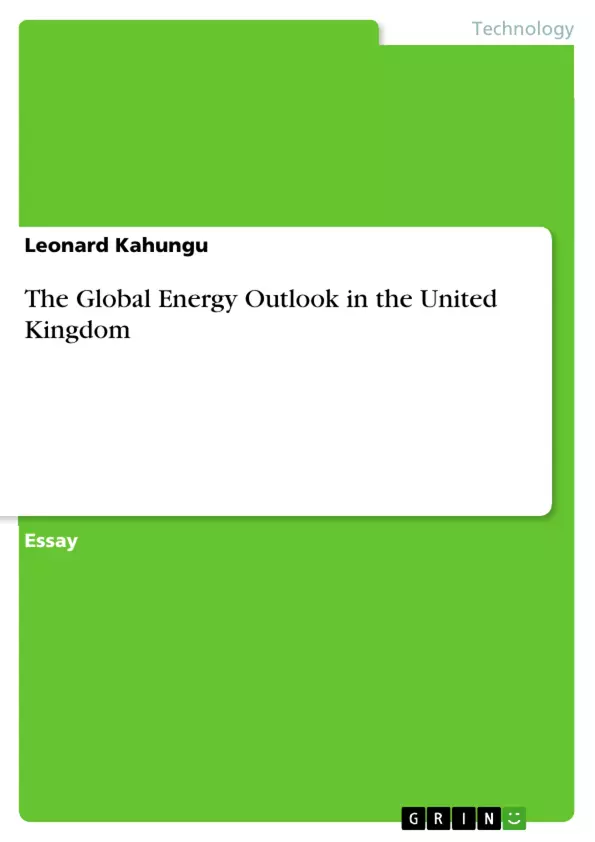Sustainable energy supply is increasingly becoming a paramount concept within the concepts of state security, economic and sociopolitical prosperity. European Union (EU) classification integrates energy supply in the provisions of general economic underscores the significance of achieving energy sustainability.
Nonetheless, energy sustainability is not an interpretation or emphasis of energy independence or natural financial systems in the contemporary fiscal structure. As a consequence, energy regulation processes in attempts to achieve sustainability has intensified across different regions across the world, including the European Union. Energy policies within the EU region are crafted to guarantee sustainability and security in energy supply among the participating countries.
These regulatory frameworks are often aligned with prevailing socioeconomic and political situations. For instance, it is estimated that the ongoing Baltic Pipe project will reinforce the sustainability and security of energy supply throughout the Central and Eastern Europe. The resulting benefits are attributed to energy source diversification, which protects the EU from an imminent crisis. This underscores the significance of evaluating potential opportunities influenced by the existing energy viewpoints in transnational energy projects. In particular, the PESTLE utilities provides a systematic analytical approach for establishing the impact of transnational energy collaborations as manifested by the Baltic Pipe on energy security in the EU region.
Inhaltsverzeichnis (Table of Contents)
- The Global Energy Outlook
- Political Factors
- Economic Factors
- Social Factors
- Technological Factors
- Legal Factors
- Environmental Factors
- Transnational Energy Infrastructure Projects and the United Kingdom
Zielsetzung und Themenschwerpunkte (Objectives and Key Themes)
This document explores the complex relationship between transnational energy infrastructure projects and energy security in the European Union (EU), focusing on the role of the Baltic Pipe project. It examines how various factors influence the sustainability and security of energy supply within the EU, aiming to provide insights into the potential benefits and challenges of collaborative energy initiatives.
- Impact of transnational energy projects on energy security in the EU
- Analysis of the PESTLE framework in evaluating energy collaborations
- Significance of political, economic, social, technological, legal, and environmental factors
- Role of the International Energy Agency (IEA) in promoting sustainable energy practices
- Case study of the United Kingdom (UK) and its reliance on transnational energy projects
Zusammenfassung der Kapitel (Chapter Summaries)
- The Global Energy Outlook: Introduces the concept of sustainable energy supply within the context of state security and economic prosperity. Highlights the significance of energy sustainability in the EU and its integration into broader economic policies.
- Political Factors: Examines the importance of international cooperation and solidarity in implementing strategies for secure and sustainable energy supply. Discusses the role of bilateral agreements and flexible trade tariffs in enhancing energy security, referencing the Organization of Petroleum Exporting Countries (OPEC) as an example of past challenges.
- Economic Factors: Analyzes the impact of diverse growth rates and natural resource distribution on energy security in the EU. Highlights the role of transnational energy projects in addressing inequalities in oil production and promoting sustainable energy consumption.
- Social Factors: Focuses on the influence of social lifestyles and population growth on energy security. Discusses how transnational collaborations can promote efficient energy utilization and encourage the adoption of conservative approaches in addressing consumption-led developments.
- Technological Factors: Investigates the role of technological advancements in shaping energy supply and demand within the EU. Emphasizes the significance of bilateral agreements in fostering the use of alternative energy sources and reducing reliance on fossil fuels.
- Legal Factors: Explores the legal framework governing transnational energy infrastructure projects. Highlights the role of international regulations in promoting energy efficiency and resolving energy consumption disputes, referencing the Energy Charter Treaty as an example.
- Environmental Factors: Discusses the environmental implications of transnational energy projects and their potential to contribute to carbon emission reduction and sustainable energy utilization. Highlights the role of multilateral collaborations in protecting natural resources and meeting international environmental goals.
Schlüsselwörter (Keywords)
Key concepts explored within this document include: sustainable energy supply, energy security, transnational energy infrastructure projects, PESTLE framework, political factors, economic factors, social factors, technological factors, legal factors, environmental factors, International Energy Agency (IEA), Baltic Pipe project, European Union (EU), United Kingdom (UK), energy diversification, bilateral agreements, alternative energy sources, renewable energy resources, carbon emissions.
Frequently Asked Questions
What is energy sustainability in the EU context?
Energy sustainability involves securing a reliable energy supply that supports economic and sociopolitical prosperity while aligning with environmental goals and carbon reduction targets.
How does the PESTLE framework apply to energy security?
The PESTLE framework analyzes Political, Economic, Social, Technological, Legal, and Environmental factors to establish the impact of transnational energy collaborations on regional security.
What is the significance of the Baltic Pipe project?
The Baltic Pipe is expected to reinforce energy security in Central and Eastern Europe by diversifying energy sources and protecting the EU from potential supply crises.
Why is energy source diversification important for the UK and EU?
Diversification protects against reliance on single suppliers or regions, reducing vulnerability to geopolitical tensions and ensuring a more stable fiscal structure.
What role does international law play in transnational energy projects?
Legal frameworks and treaties, like the Energy Charter Treaty, help resolve consumption disputes and promote efficiency across participating nations.
- Arbeit zitieren
- Leonard Kahungu (Autor:in), 2018, The Global Energy Outlook in the United Kingdom, München, GRIN Verlag, https://www.hausarbeiten.de/document/428639


